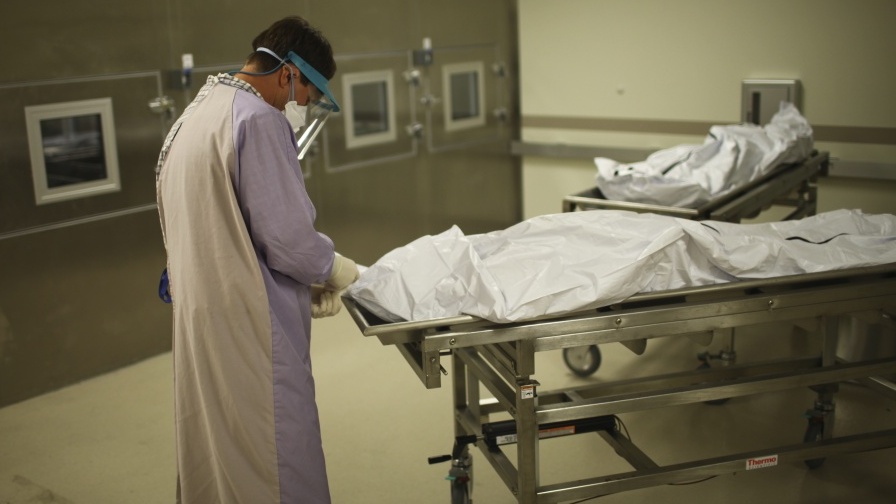FORENSIC-MEDICINE

- Forensic-medicine, also known as forensic pathology or legal medicine, is a branch of medicine that deals with the application of medical knowledge to legal cases. Forensic pathologists are medical doctors who specialize in examining and analyzing evidence related to violent or unnatural deaths, including homicides, suicides, accidents, and suspicious deaths.
- Here are some key aspects of forensic-medicine:
- Autopsy: Forensic pathologists conduct autopsies to determine the cause of death, the manner of death (such as homicide, suicide, accident, or natural causes), and to gather evidence that may assist in legal proceedings. Autopsies involve a thorough examination of the body, including external and internal examinations, toxicology testing, and microscopic analysis of tissues.
- Evidence Collection: Forensic pathologists are responsible for collecting and preserving evidence from the body that may be relevant to legal investigations. This can include documenting injuries, collecting biological samples for DNA analysis, and preserving trace evidence such as fibers or gunshot residue.
- Expert Testimony: Forensic pathologists often testify in court as expert witnesses to present their findings and provide interpretations of medical evidence. Their testimony can be crucial in criminal trials to help establish the cause and manner of death and to assist in the determination of guilt or innocence.
- Identification: Forensic-medicine plays a vital role in the identification of human remains, especially in cases of mass disasters, homicides, or when bodies are severely decomposed or disfigured. Techniques such as DNA analysis, dental records, and fingerprinting are commonly used for identification purposes.
- Consultation: Forensic pathologists may also provide consultation and advice to law enforcement agencies, medical examiners, coroners, and other professionals involved in death investigations. They may assist in crime scene analysis, interpretation of medical records, and review of autopsy findings.
- Research and Education: Forensic pathologists engage in research to advance the field of forensic-medicine and improve techniques for investigating deaths. They also play a role in educating medical students, residents, and other healthcare professionals about forensic pathology and its importance in legal proceedings.
- Overall, forensic medicine plays a critical role in the justice system by providing objective, scientific analysis of medical evidence to help determine the circumstances surrounding deaths and to ensure justice is served.
- It deals with the examination and Diagnosis of Individuals Who Have Been Injured by or who have died because of external or unnatural causes such as poisoning, assault, suicide, and other forms of violence.
- The manner of death, the circumstances surrounding the cause of death, which, in most jurisdictions include the following -Homicide, Accidental, Natural, Suicide, Undetermined Ipc sec 46, Defines death – “The Words death” denotes the death of human beings.
- Death is defined as the irreversible cessation of life, insensibility inability to move, and permanent and complete stoppage of functions and vital organs of the body known as tripod of life.
- Brain
- Heart
- Lungs
- Stages of death- As per Shapiro there are two stages
- Somatic death -It refers to the death of the tissue, system, or body and is clinical death, as a whole. It coincides with the death of the brain stem.
- Molecular death-It is the death of all the individual cells within the body. It follows 2-3 hrs after somatic death
- Forensic-medicine is an immense and interesting branch of medical science which deals with medical science which deals with medical aspects of law. It Includes two concepts first is forensic which means “court of law” and the other is medicine which deals with medical and pharmaceutical knowledge. So that knowledge of that aspects is used in the judiciary system. It helps in examining and analyzing the body in injuries, murder, accident, suicide poisoning, etc.
- Father of forensic-medicine – Sir Bernard Spilsbury. Forensic-medicine was also known as state medicine in 1949. It is multi dispensary branch that coincides with various practices like:
- Pathology
- Odontology
- Toxicology
- And many more: It has many categories in a different frame of examination for analyzing or examining various injuries on living bodies and other one for the analyzing or examining inquest corpse. Stages of muscle changes in the body after death
- Primary relaxation
- Rigor mortis (Stiffening of muscles)
- Secondary relaxation
- Rigor Mortis helps in estimating the time since death as well as gives information if the body has been moved after death Forensic-medicine, also known as forensic pathology or legal medicine, is a branch of medicine that deals with the application of medical knowledge to legal cases. Forensic pathologists are medical doctors who specialize in examining and analyzing evidence related to violent or unnatural deaths, including homicides, suicides, accidents, and suspicious deaths.


